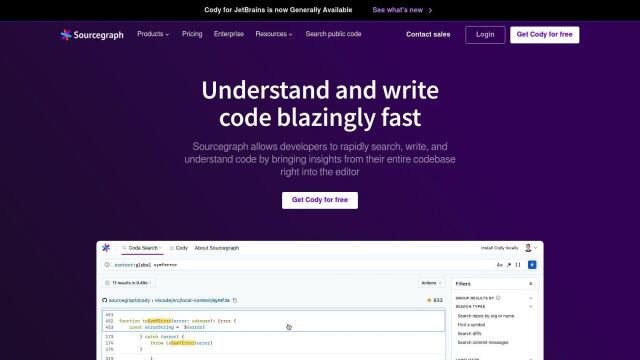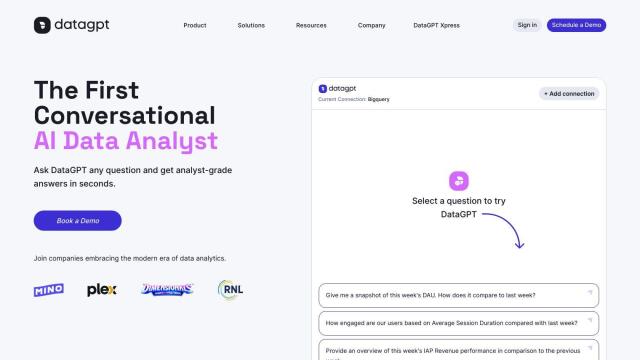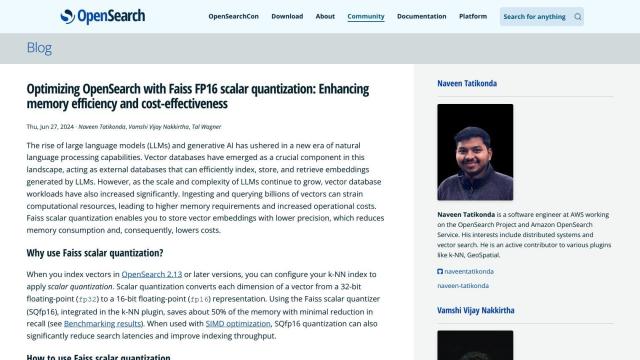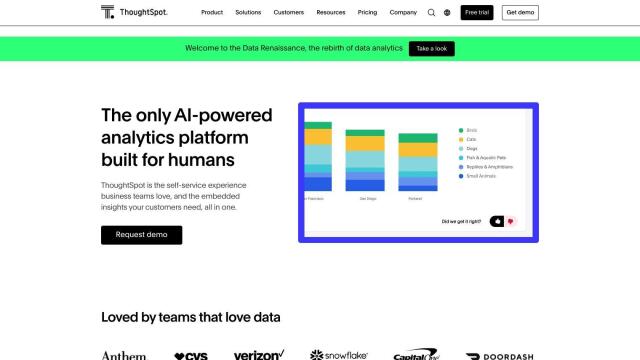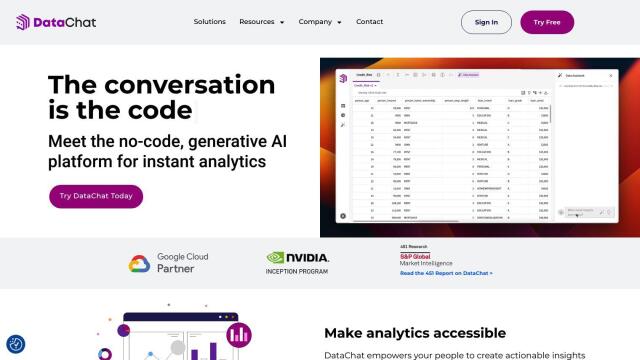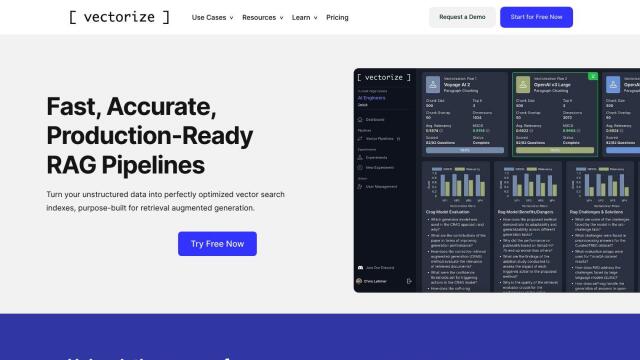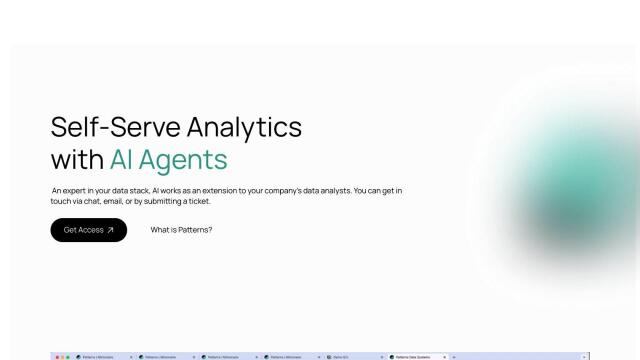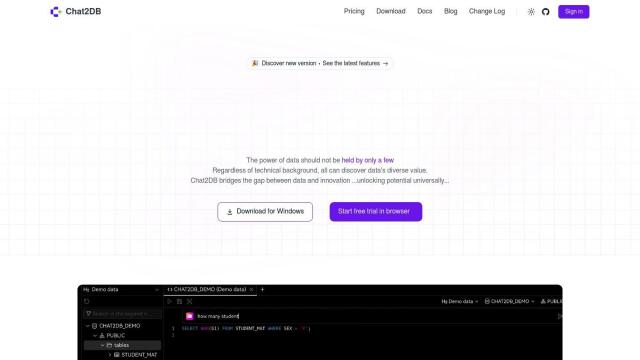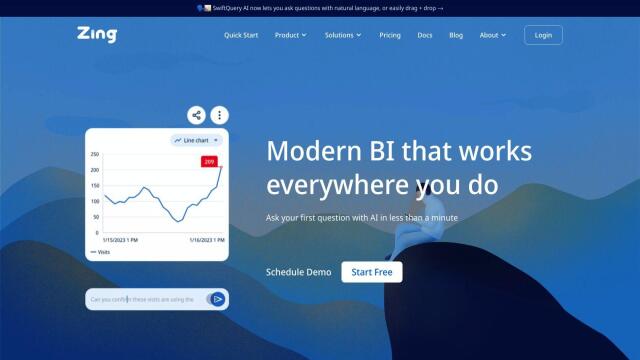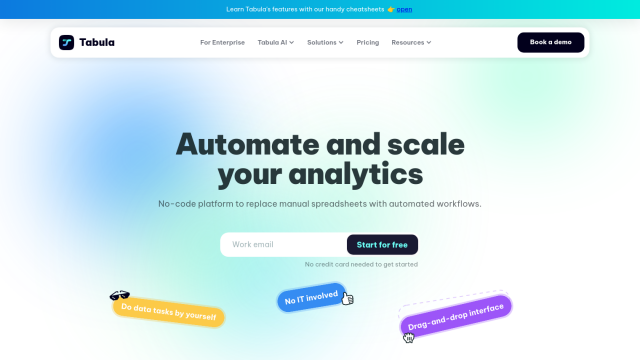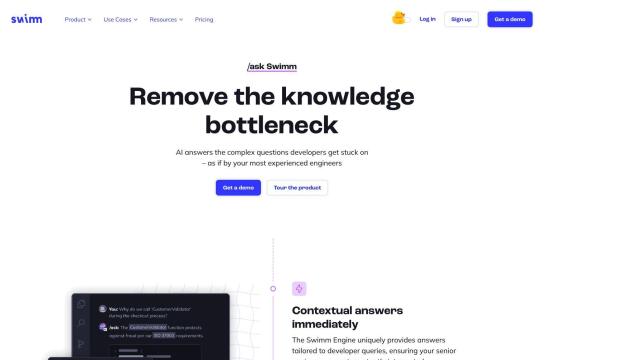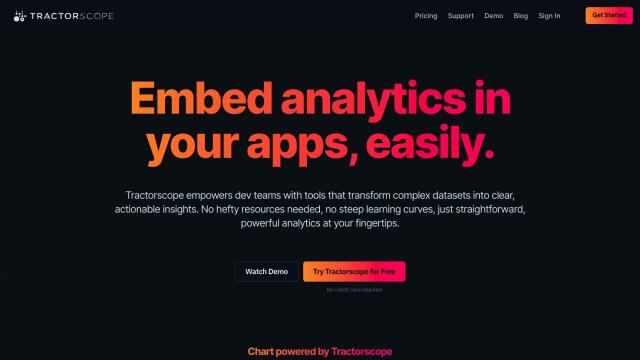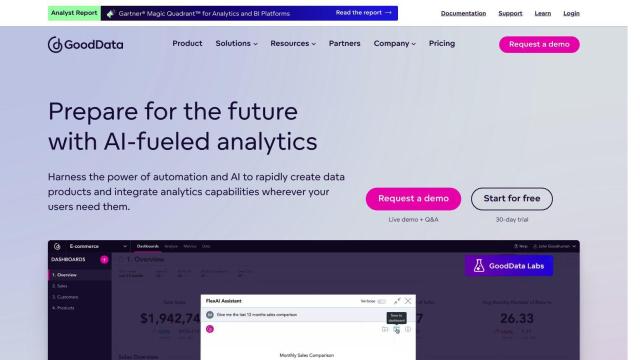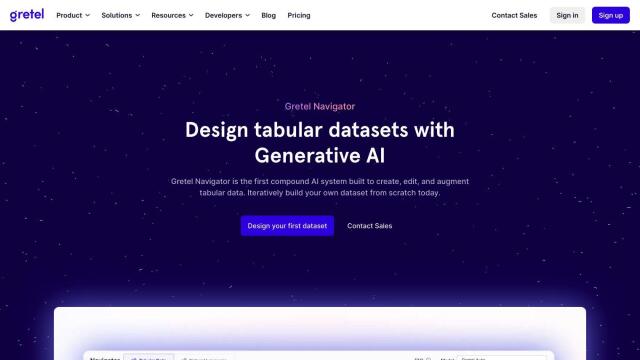Question: I need a solution that can search and analyze complex data structures, such as code and tabular data, can you suggest one?


Jina
Jina is an AI information retrieval system that's particularly good with multimodal data. It's got modules for code search, tabular data search and support for more than 100 languages. Jina's reranker API lets you fine-tune search results, and its auto fine-tuning module lets you build domain-specific models quickly. It's available on-premises through AWS Sagemaker, Microsoft Azure and Google Cloud Services, and you can try it with a free 1 million tokens.

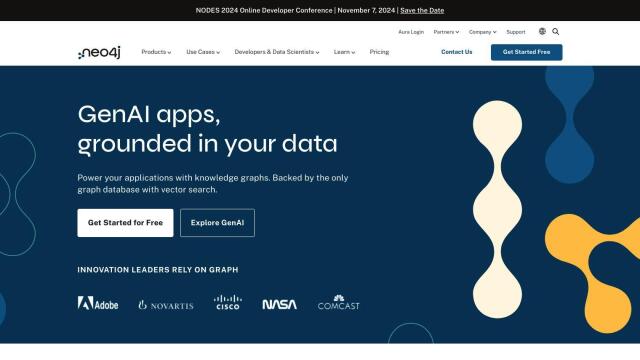
Neo4j
Another strong contender is Neo4j, a graph data platform that can connect and query complex data. Neo4j supports data science and machine learning, vector search and analytics. It's good for knowledge graphs, real-time insights and intelligent applications, and can be deployed in self-hosted, cloud-managed and fully managed modes.


Vespa
Vespa is a unified search engine and vector database that supports vector search, lexical search and structured data search. It's good for building search applications at scale with features like fast vector search and machine-learned models. Vespa also integrates with a variety of machine learning tools and has auto-elastic data management for high performance and low latency, so it's a good option for large data sets.

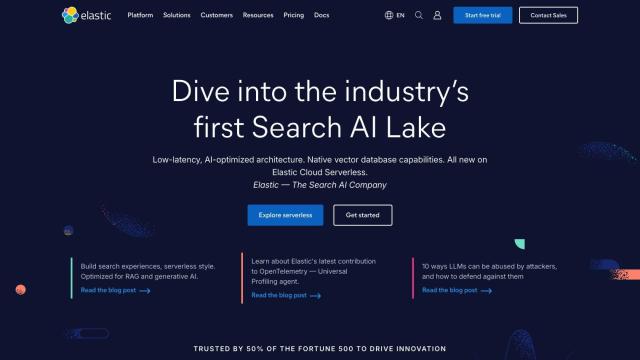
Elastic
If you want a full-featured search AI platform, you might want to look at Elastic. It speeds up time to insight with its ELK Stack, Elastic Cloud and Generative AI abilities. Elastic has a variety of use cases including search, security and observability, so it's a good option for businesses that want to simplify data analysis and improve search.

